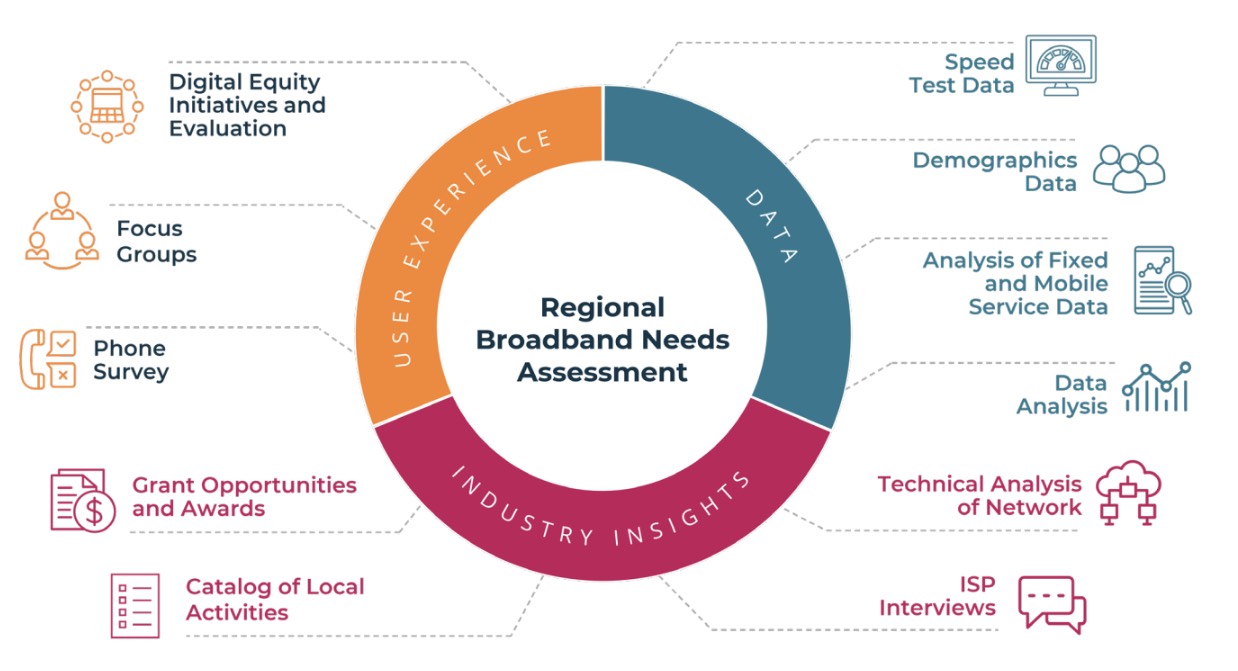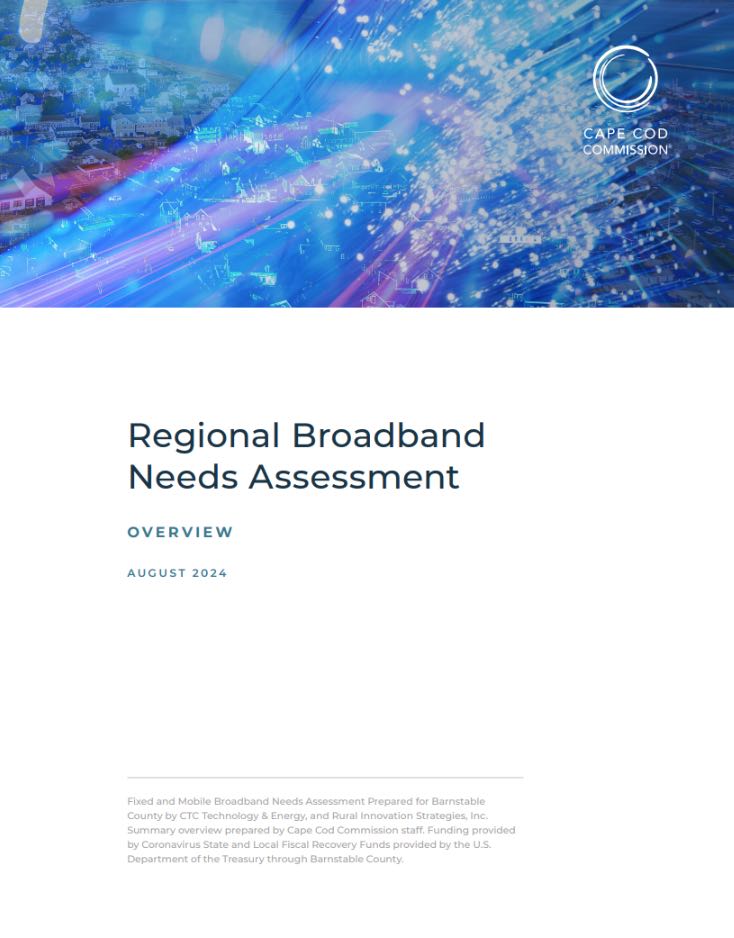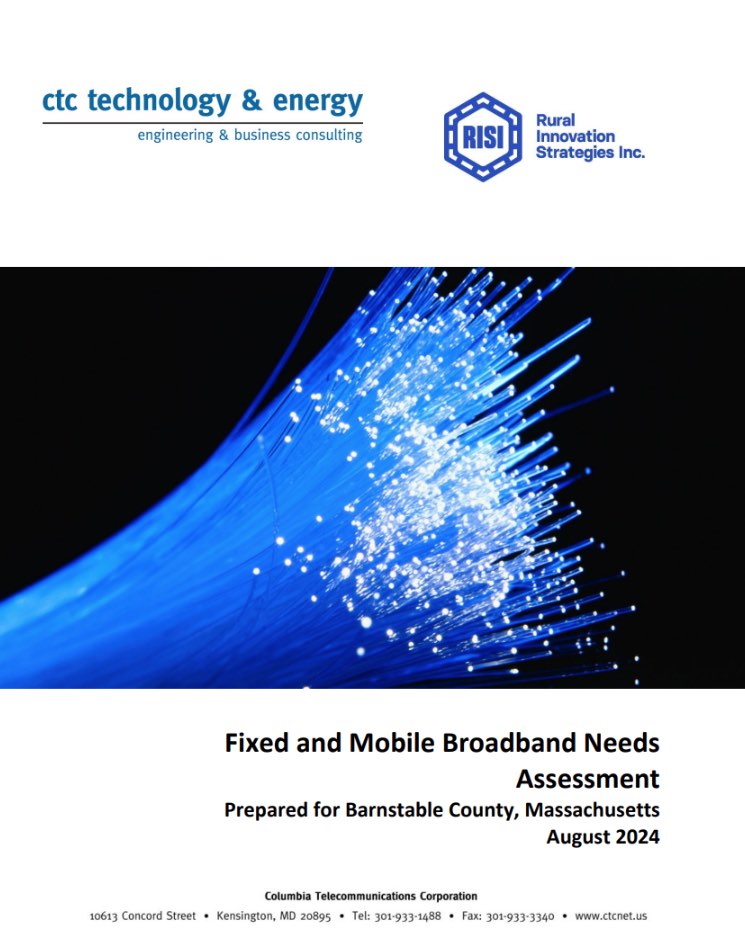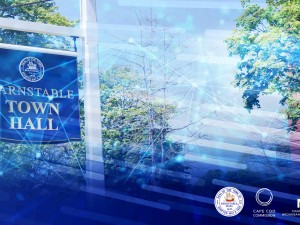- Overview
- Components
- Key Findings
- Recommendations
Overview
Access to fast and reliable internet is essential for vibrant communities, enabling work, learning, and engagement through devices like cell phones, tablets, and computers. High-speed broadband is crucial for households, businesses, and institutions across Cape Cod, making it a key priority for economic development and community planning.
As essential services continue to be offered virtually, maintaining a robust internet network is critical. The Regional Broadband Needs Assessment Summary and Report presents key finding and recommendations to support an understanding the current broadband landscape and inform decision-making on opportunities to improve broadband infrastructure and address digital equity challenges.

Key Components
The Summary and Report include a presentation and analysis of:
- Quantitative and qualitative data on fixed broadband (cable, fiber, DSL, and fixed wireless services) and mobile service availability, as well as gaps or deficiencies in these services
- Challenges with respect to affordability, digital skills, digital literacy, and device access as determined from a survey conducted as part of this project, Commission staff observations, and additional data
- Information and perspective on recent and evolving market developments that may lead to fiber-to-the-premises (FTTP) deployments
- Information on how municipalities can pursue and leverage deployment of FTTP through a variety of approaches, the levels of risk and control involved, and recommendations based on the data.
Key Findings
Below are highlights of the key findings from the Summary which are presented in more detail in the Report.
Cape Cod has nearly ubiquitous broadband service with the FCC reporting that 99.57% of addresses have access to broadband services with advertised speeds above 100/20 Mbps. There is very little competition for high-speed service, with 99.5% of residential and business addresses served by Comcast. The lack of competition results in the highest internet prices in the Commonwealth and significant issues with internet affordability.
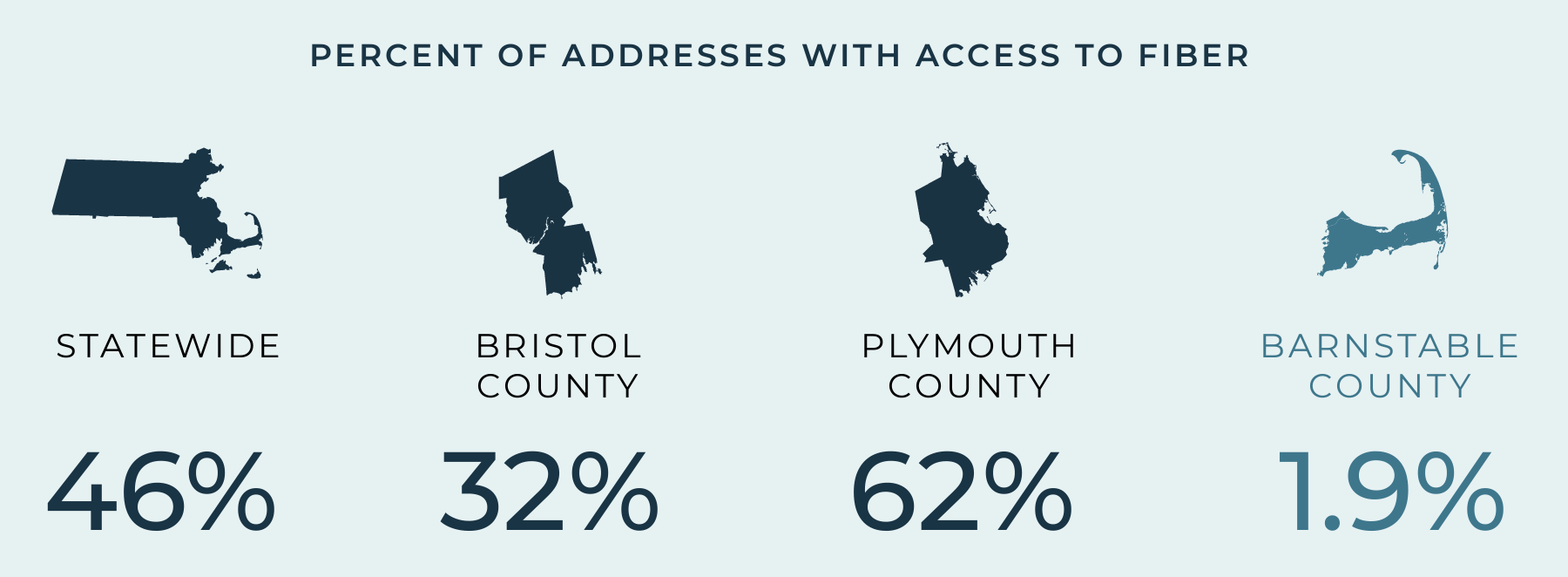
Verizon’s residential fiber service is currently limited to parts of Bourne, but Verizon received a state grant to address service gaps in seven Cape towns, and Yarmouth, indicating potential plans for broader fiber deployment. For larger businesses and enterprise customers, competitive fiber providers including OpenCape and Comcast Business are available.
Approximately
39%
of survey respondents reported experiencing slowdowns or drops at least one or more times per week
69%
of survey respondents who were not “very satisfied” reported that their service was too expensive![]()
Survey responses indicate that Residents are concerned with the speed, quality, and cost of available cable broadband service. Similarly, large numbers of residents report problems with mobile voice and data services. Consistent with anecdotal accounts, speed tests show that Cape Cod experiences considerable seasonal degradation of fixed and mobile broadband service.
Barnstable County's towns, the Mashpee Wampanoag Tribe, and community organizations have made key efforts to improve broadband, including establishing fiber connectivity in downtown zones though OpenCape, forming task forces, securing municipal grants, and in Falmouth, establishing a public entity to explore municipal broadband options.
Beyond broadband access and affordability, significant barriers exist for segments of the population related to computing devices and internet skills. In particular, challenges were noted for aging, immigrant, and low-income populations.
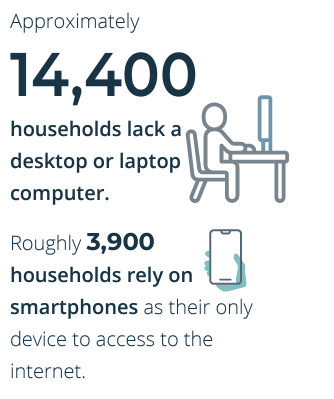
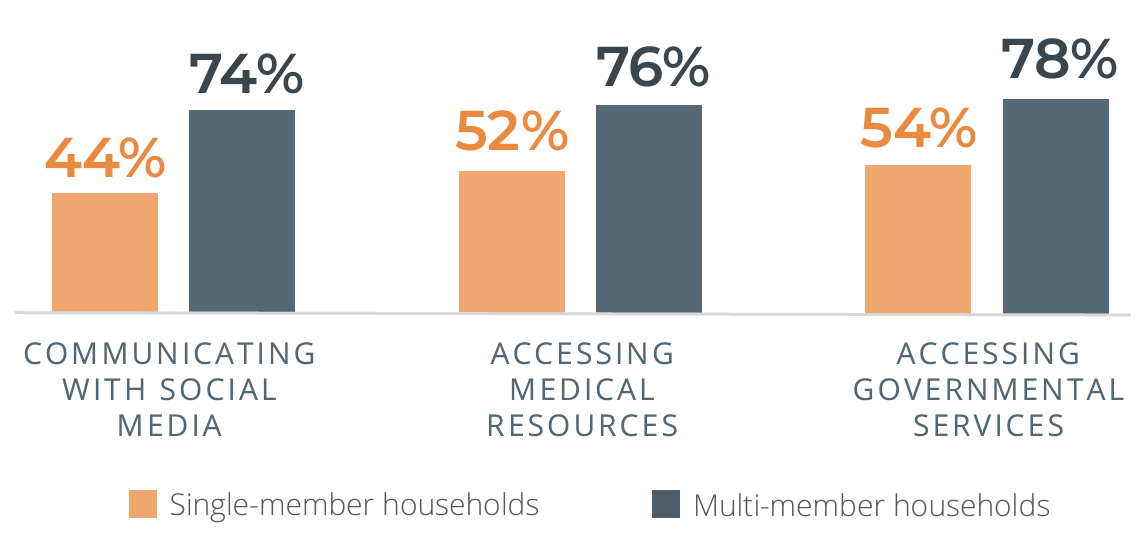
Summary of Recommendations
The Summary and Report outline 14 recommendations that address needs and opportunities identified across three broad categories: fiber and fixed broadband infrastructure, mobile network enhancements, and advancing digital equity on Cape Cod. The recommendations offer strategic approaches for municipal and regional leaders and other stakeholders to enact across Cape Cod.
- Fiber/fixed broadband infrastructure recommendations encourage increased internet service provider options and fiber rollout across Cape Cod, and emphasize the importance of robust fiber-to-the-premises (FTTP) deployments, leveraging municipal needs for infrastructure development.
- Mobile service recommendations focus on enhancing mobile network coverage to address service gaps and collaborating to gather high-quality mobile service data to develop solutions with mobile service providers.
- Digital equity recommendations provide collaborative solutions to close the digital divide beyond connectivity challenges, focusing on efforts that build local and regional capacity for equitable connectivity, device access, and digital skills.
|
CATEGORY |
RECOMMENDATIONS |
|
FIBER/FIXED BROADBAND INFRASTRUCTURE |
|
|
MOBILE SERVICE |
|
|
DIGITAL EQUITY |
|
